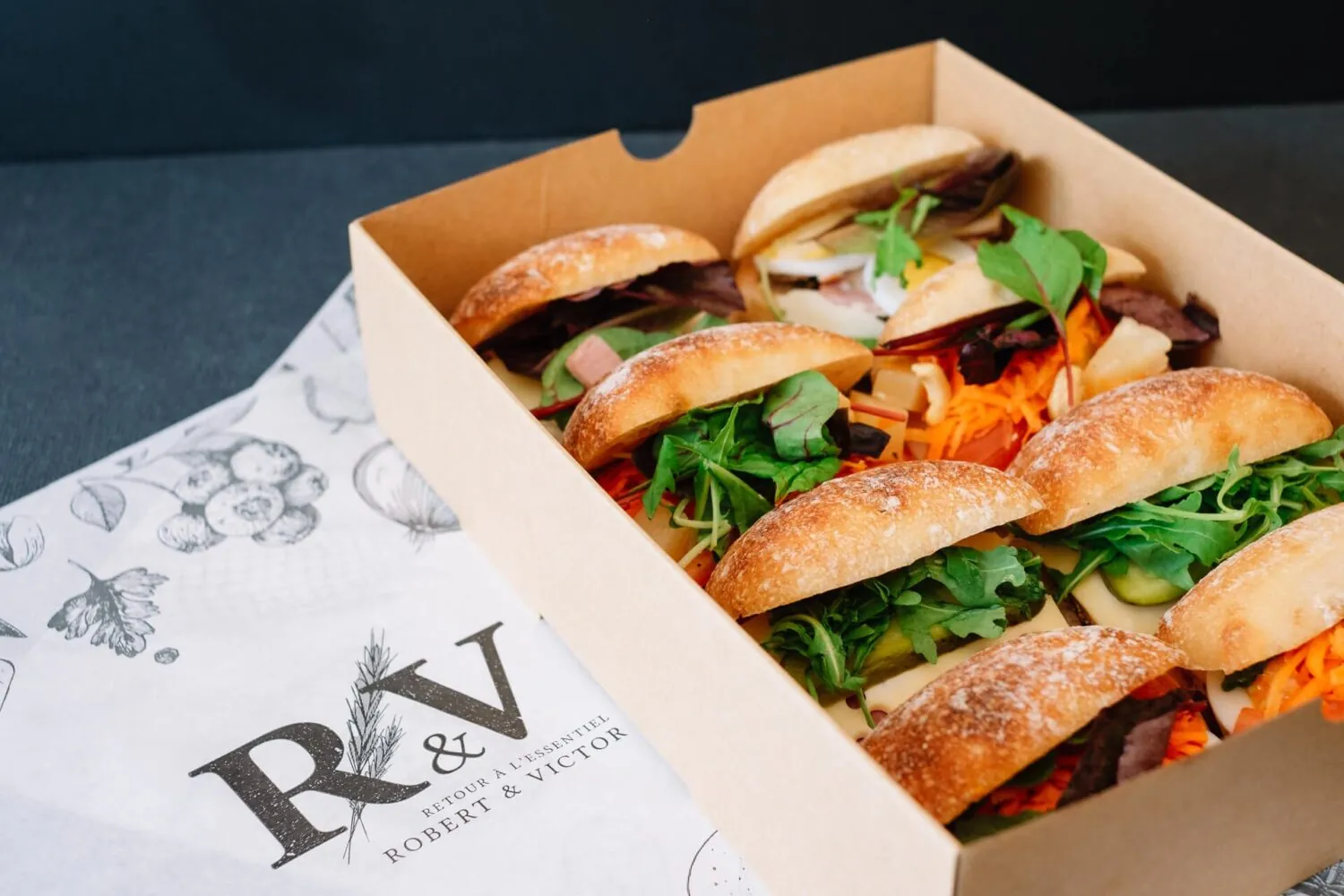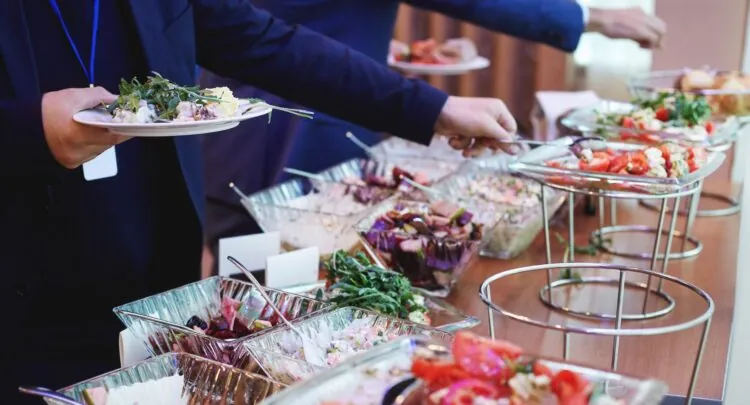
When hiring a caterer for your meeting, event or working lunch there are several factors to consider. Availability and style/ quality of food are the obvious first elements, closely followed by good reputation, flexibility, and reasonable pricing.
Another major element that is becoming more and more important is sustainability.
A sustainable business is one that makes a sufficient amount of effort throughout their operations to reduce negative environmental impact. An increasing number of companies are now factoring this into their business strategies to face the ongoing issue of climate change. Sustainable businesses will consider their carbon footprint, energy usage, wastage and ensure all supplies are ethically sourced.
As the world becomes more populated and developed, humans are releasing an increasing amount of pollution into the air, ocean and land. Sustainability practices help to protect the eco-system, preserve natural resources for future generations and thus improve the quality of our lives.
With concerns of climate change growing, it has become an ongoing trend for many to only work with green companies, as well as partake eco-friendly practices themselves, and do their bit to help the planet.
R&V Sustainability
At R&V we pride ourselves on our sustainability efforts and are continuously looking into new ways to reduce our carbon footprint throughout our day-to-day operations.
We always use ethically sourced and seasonal produce from wonderful local suppliers in our dishes; including the amazing La Chouquette in Didsbury for our bread and pastries, Silver Apple Bakery in Stockport supply us with their beautiful cakes, our incredible meat is delivered by The Unsworth brothers in Salford, and most of our veggies are grown by the Halman family at Woodland Farm (Cheshire).
When delivering orders we work with the brilliant Manchester-based company, Xen Couriers, who mainly use cycle-trailers (or cargo bikes) as their transport method.
We have a no plastic policy when it comes to packaging! Only fully compostable cardboard is used to carry our food or Bagasse bowls (sugarcane pulp) for our salads and more.
Our disposable cutlery, mini bowls, and platters are made from bamboo or palm leaf, although we opt for reusable alternatives where possible.
Our amazing staff all walk or use public transport to get to our shop (when not working remotely) and we have recently signed up to the government-ran Bike2Work scheme which we are incredibly excited about!
Green Tips
For caterers (or any company) wanting to increase their ‘greenness’, we have put together a few simple recommendations that will make a big difference.
Recycling is a must! Get your green, red, and blue bins sorted and allocate rubbish accordingly. If you have to buy products in plastic packaging, try to make sure it is recyclable or compostable. A rule we like to stick to at R&V is: reduce, reuse and then recycle!
Prevent food wastage as much as possible. Did you know that in the UK alone we throw away around 9.5 millions tonnes of food waste a year?
When ordering, buying, or making food, try to calculate as precisely as possible how much you will need depending on the amount of people and the time the food will be served (less food will be eaten mid-morning or late afternoon). When ordering through a caterer, they should be able to help out with food quantity recommendations.
If there is still a decent amount of leftovers, get in touch with local food banks or help centres and arrange for them to take it off your hands. Any food wastage we have at R&V goes across the road to UCKG Help Centre or we also work with Ian Rutherford (Minister of Manchester Methodist Central Hall) to distribute everything to shelters in the area after events.
For the smaller amounts of food wastage, try to dispose of them in a compost bin.
Source local and seasonal produce! This will help will your carbon footprint (as there will be less distance for your food to travel) and ultimately provide you with fresher and tastier in-season food
Using independent, local companies as much as possible with other your supplies is also important.
Influence your staff to use public transport or walk/cycle to work to reduce their personal carbon footprint.
Schemes like the Bike2Work help pay for a new bike + bike equipment for your staff to inspire them to not drive as frequently.
Reduce energy usage where possible – this can involve maximising natural light or introducing energy efficient lighting, upgrading your insulation to reduce central heating needs, and keeping equipment properly maintained (any equipment that isn’t regularly serviced typically has to work harder than it needs to).
As well as minimising energy usage, this will also help save money on those ever-increasing energy bills!
Finally, we recommended using eco-friendly cleaning products that are biodegradable and non-toxic.
Whether you are considering introducing more environmental practices to your work or home, or hoping to use eco-friendly suppliers, every little helps towards a greener future.
If you are looking to order with a sustainable caterer or request more information on our sustainability practices, please get in touch! [email protected]



